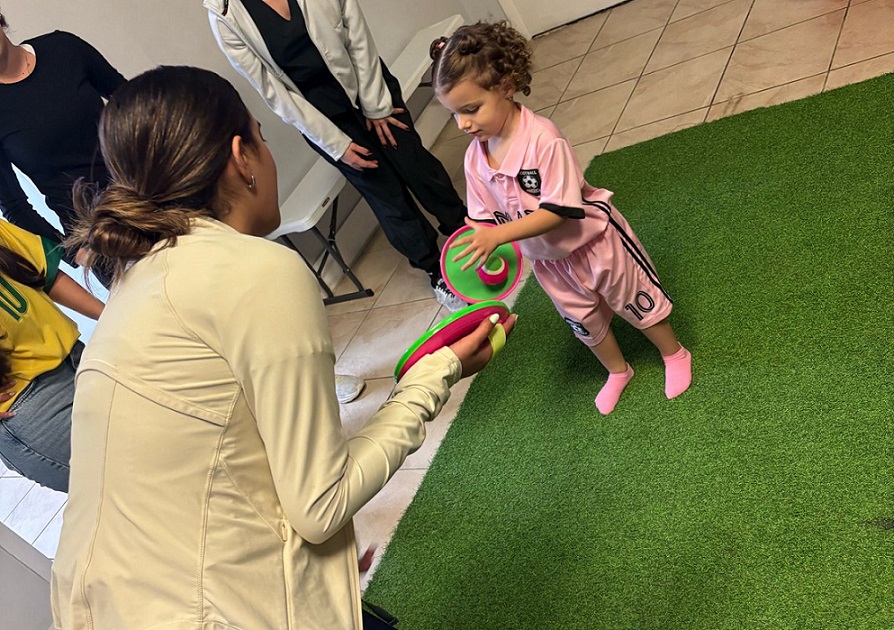Attention Deficit Hyperactivity Disorder (ADHD) is a neurodevelopmental condition that affects millions of people worldwide. Therefore, understanding how the evaluation of ADHD is conducted is essential for timely and effective detection and treatment of this disorder.
Specifically, ADHD affects 11% of school-aged children in the United States. Moreover, its symptoms continue into adulthood in more than three-quarters of cases. For this reason, this article will explore the key aspects of ADHD evaluation, from its symptoms to the diagnostic methods most commonly used by professionals.
What is ADHD and Why is it Important to Evaluate?
ADHD is a neurodevelopmental disorder characterized by difficulties in attention, hyperactivity, or impulsivity. Thus, an appropriate evaluation is crucial for identifying this condition early and distinguishing it from other similar issues, thereby facilitating access to treatments tailored to each individual’s needs.
Of course, children with ADHD can be very successful in their future lives. However, without proper identification and treatment, ADHD can have serious consequences, including academic failure, family stress, depression, and job loss. Therefore, both early identification and treatment are extremely important.
Now, why is the evaluation of ADHD important? Here’s a summary for you:
- Accurate Diagnosis: It allows for the identification of whether a person truly has ADD or if their symptoms correspond to another disorder.
- Personalized Interventions: It facilitates the creation of treatments and strategies tailored to individual needs.
- Prevention of Complications: It helps avoid secondary problems, such as academic, social, or emotional difficulties.
- Educational Support: It enables the provision of resources and accommodations in the academic environment to improve the patient’s performance.
- Family Awareness: It fosters family understanding of the disorder, promoting more effective support.
- Improvement of Well-being: It contributes to affected individuals having a better quality of life and reaching their full potential.
What are the Most Common Symptoms of ADHD in Children?

Clearly, almost everyone can have difficulty staying still, paying attention, or controlling impulsive behavior from time to time. For some individuals, however, these problems are so widespread and persistent that they interfere with every aspect of their lives: home, academic work, social interactions, and employment.
Typically, ADHD symptoms emerge in early childhood. However, these symptoms can be difficult to distinguish from typical behavior in children under four years old. Since ADHD significantly affects the behavior of young children, recognizing its symptoms in a timely manner is essential for initiating an evaluation and providing them with appropriate support.
Some key indicators include:
- Difficulty Maintaining Attention: Problems concentrating on specific tasks or activities, especially those requiring prolonged mental effort.
- Impulsive Behavior: Acting without thinking about the consequences, such as interrupting conversations or having difficulty waiting one’s turn.
- Hyperactivity: Constantly moving around, even in situations where stillness is expected, such as at school.
- Frequent Distraction: Switching from one activity to another without completing any, showing a lack of focus.
- Forgetfulness or Carelessness: Losing important items like school supplies or toys, or easily forgetting instructions.
- Difficulties in Social Settings: Problems getting along with peers due to impulsive or hyperactive behaviors.
Methods of ADHD Evaluation: How is the Diagnosis Made?
So far, there is no single test to diagnose ADD on its own, like a ADHD test for children. Therefore, a comprehensive evaluation by ADHD therapists and other specialists is necessary to establish a diagnosis, rule out other causes, and determine the possible presence of coexisting conditions.
Thus, the diagnosis of Attention Deficit Hyperactivity Disorder is a key process that requires precision and expertise from healthcare professionals. Logically, accurately identifying this condition is essential for providing appropriate treatment and improving the quality of life for those affected.
Some of the main methods used for ADHD evaluation and how experts achieve an accurate diagnosis include:
- Clinical Interviews: Healthcare professionals talk with the patient and their family members to gather information about their behavior, medical history, and social background.
- Questionnaires and Rating Scales: Standardized tools, such as the Conners Rating Scale, help measure the severity of symptoms.
- Direct Observation: Specialists analyze the patient’s behavior in different settings, such as home and school.
- Psychological Evaluation: This includes attention and memory tests that help identify difficulties related to ADHD.
- Detailed Medical Histories: Collecting information about family background and environmental factors is key to understanding the cause of the symptoms.
- Differential Diagnosis: Experts rule out other conditions that may cause similar symptoms, such as learning disorders or anxiety.
Differences Between ADHD and Other Similar Disorders.

At this point, it is clear that determining whether a child has ADHD is a complex process. Additionally, many biological and psychological issues can contribute to the presence of symptoms similar to those exhibited by children with Autism Spectrum Disorder (ASD). Moreover, anxiety, depression, and certain types of learning disabilities can cause similar symptomatology.
Therefore, ADHD is often confused with other disorders due to the similarity of its symptoms. However, an accurate diagnosis is crucial for providing appropriate treatment and avoiding incorrect interventions.
The key differences between ADHD and other conditions that may present similar characteristics are:
- ADHD vs. Anxiety: Anxiety typically involves excessive and constant worries, while ADHD is characterized by difficulties in maintaining attention and controlling impulsivity.
- ADHD vs. Learning Disorders: Learning disorders affect specific skills, such as reading or mathematics, but do not necessarily involve impulsivity or hyperactivity.
- ADHD vs. Oppositional Defiant Disorder (ODD): While both may include challenging behaviors, ODD usually manifests as a pattern of hostility and defiance towards authority figures, whereas ADD focuses more on attention and self-regulation issues.
- ADHD vs. Autism Spectrum Disorder (ASD): Children with ASD may show hyperactivity but also exhibit significant problems in social communication and repetitive behaviors, which are not characteristic of ADD.
- ADHD vs. Depression: Depression may include loss of interest and concentration problems but also presents with a persistent low mood, which is not typical of ADHD.
- ADHD vs. Bipolar Disorder: Bipolar disorder is characterized by alternating episodes of mania and depression, while ADHD symptoms are more constant and do not depend on fluctuating mood states.
What to Expect After an ADHD Evaluation?
Once the evaluation for Attention Deficit Hyperactivity Disorder is completed, it is natural to wonder what comes next and what the impact of ADHD will be. This process opens the door to treatments and strategies designed to improve the quality of life for those facing this condition.
Most of the treatment research on ADHD has focused on the condition in children and on options that have a strong evidence base for reducing symptoms. Thus, for many, the need for intervention persists in the long term.
Here are some of the steps following the ADHD evaluation and how they can make a difference:
- Detailed Diagnosis: You will receive a report that describes the findings, including whether ADD has been confirmed and its possible impact on different areas of life.
- Personalized Treatment Plan: Professionals will design a tailored plan that may include behavioral therapy, medications, or educational interventions.
- Family Guidance: Support and resources will be provided to help family members understand ADD and how to manage it at home.
- Ongoing Follow-Up: Periodic reviews will be essential to assess progress and make adjustments to treatment if necessary.
- Access to Educational and Social Resources: Tools such as school accommodations or support programs will be provided to facilitate the patient’s development.
- Personal Empowerment: The individual will learn strategies to manage symptoms and improve their emotional and social well-being.
Treatment Options for ADHD: What Approaches Exist?
We have come to understand that Attention Deficit Hyperactivity Disorder is a condition that can be effectively managed through treatments tailored to the needs of each individual. From behavioral therapies to pharmacological interventions, the available approaches can significantly enhance the quality of life for people with ADHD.
Here are the main treatment options and their benefits:
- Behavioral Therapy: Helps modify behavior patterns through practical strategies and positive reinforcement, being especially useful for children.
- Medications: Include stimulants that help improve attention and reduce hyperactivity and impulsivity.
- Educational Interventions: Include personalized plans within the school environment to promote learning and adapt to the specific needs of the student.
- Psychotherapy: In adults and adolescents, this can address emotions and develop skills to manage stress and relationships.
- Family Support: Programs aimed at guiding parents and caregivers in managing the challenges of ADD at home.
- Alternative Therapies: Some families opt for complementary approaches, such as mindfulness techniques or dietary changes, although their effectiveness may vary.
By working closely with healthcare providers and other professionals, treatment should be tailored to the unique needs of each individual and family to help the patient manage symptoms, cope with the disorder, improve overall psychological well-being, and navigate social relationships.
Koala ABA & Learning Centers: Start Your Journey with Us.
Koala ABA & Learning Centers is a top-tier institution committed to conducting comprehensive psychological and educational evaluations for individuals suspected of having Autism Spectrum Disorder (ASD) and other neurodevelopmental conditions. Recognizing the uniqueness of each individual, our evaluations are meticulously crafted to meet their specific needs.
Our Developmental Evaluation is designed for young children who present issues in areas such as communication, language, and social interaction. This evaluation includes:
- Utilization of reference diagnostic measures for Autism Spectrum Disorder (ASD), such as the ADOS-2 and the ADI-R, to meticulously assess behavioral symptoms related to ASD.
- Comprehensive developmental testing to evaluate various aspects, including language proficiency, cognitive abilities, daily living skills, and motor skills.
- Assessment of emotional and behavioral functioning to understand behavior patterns, emotional regulation capabilities, and coping mechanisms.
If you have observed concerning symptoms, want to know what the next step is, or need assistance with your child’s evaluation for effective treatment right now, contact us today. At Koala ABA & Learning Centers, we are always ready to help your child on their journey.




